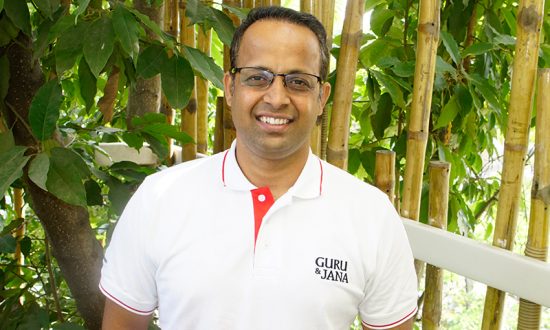A chartered accountant with more than 18 years of proven experience in accounting & finance and mentor of many corporates, Pankaj Mandhane is one of the founders of ITAP (Institute of Taxation & Accounting Professionals), an ISO 9008-2015 certified financial and technical training institute founded in 2008. An author of several critically acclaimed articles, Pankaj a Chartered Accountant and Postgraduate in Commerce from Pune University, currently oversees overall operations at ITAP. During his time off, Pankaj likes to pen down his thoughts and apprehend skills that would help students build their career. Pankaj also offers counseling sessions to juveniles in an effort to motivate them to be a part of the mainstream society.
Today’s education system is slanted towards the teaching of just professional skills, posing serious challenges over the coming years. As the demands of the job market are continuously evolving, education needs to keep pace with these changes to prepare students for jobs in the years to come. There will be more focus on developing soft skills along with the professional skillset. In terms of accounting and taxation, we do not see jobs becoming redundant but up-to-date technology expertise will be a pre-requisite.
Education 4.0 is the perfect solution to meet the skill gap. It encourages a trained workforce that is ready to meet the demands of a globalized, digital workplace. In line with this thinking, ITAP’s mission is to focus on academically marginal students from semi-urban and rural areas with an aim to equip them with skills in accountancy, taxation and finance that can make them industry ready. There is a huge demand for trained accounting professionals, especially post GST, and ITAP hopes to bridge this gap.
Importance of Upskilling
Skill development is paramount for economic and social development. India has thousands of job vacancies but a lot of unemployed youth too. Students spend almost three to five crucial years of their life in completing graduation and despite such a long investment of time, they do not get relevant jobs. The problem here is the skill gap.
Shortage of talent and skilled workforce across almost every sector is the reason behind the shallow employability status of young Indian students. There is a need to build a strong foundation of training institutes and trainers to work on the skill mismatch issue. We need to do our bit to give a helping hand to the students to advance their employability skills.
Accounting, finance and management is a very dynamic and practical occupation. There are continuous changes and upgradation in this practice. Therefore, professionals in pursuit of these careers need to constantly update themselves. Upskilling will open up a world of better career prospects for working professionals. Many a times, professionals cannot devote two-three years again for training or education once they start their career. This makes short-term courses helpful for professionals to upgrade their skills.
At present, there is a huge demand supply gap for sure in finance education. India is reinventing itself with the introduction of hundreds of new laws such as GST, Ind AS, IFRS, digital accounting, Sebi changes, rating changes, IBC and many more. The financial instruments have witnessed changed substantially, and therefore there is a discernible gap. That apart, the advent of new business models by start-ups such as Swiggy, Dunzo, Practo, Amazon and so on do not follow just the traditional practices. As accountants and finance professionals, we will have to reinvent the practices with a more practical approach. Having said that, we need a large number of credible and skilled accountants to give the market a boost.
Recruiters today place a lot of emphasis on candidates with a proactive approach, good judgement and working knowledge in addition to subject knowledge. Practical knowledge is what they look for. To give an example, employers these days expect fresh commerce graduates to file the GST return or a PF return on the first day of joining without much hand holding, but most students find it difficult to accomplish such tasks assigned to them due to lack of hands-on training in classrooms.
Challenges for Academicians
Academicians have an important role to play in the society and they are here to stay. However, the medium of communication is undergoing a lot of change. In a country plagued by shortage of teachers and disproportionate student-teacher ratio, digitization of education has been doing wonders. While there is a certain amount of regulation that comes into play with a traditional classroom, lack of discipline is a major challenge with digital education. Having said that, academicians have faced these challenges all along right from gurukuls to traditional schooling, from black boards to PPTs, from face-to-face interactions with students to WhatsApp communication and so forth and traversed the path successfully. However, the shrinking attention span of students is a major challenge for academicians these days. Students can barely concentrate for about 15 minutes. We need to constantly evolve and adapt our teaching methodologies to keep up with these changes.
Content certainly is crucial in our line of work because the entire process of accounting and compliances relates to law. This content can be delivered only as per the legal process, through government websites, set protocol and so on. There cannot be modifications whatsoever to suit individual teaching methodologies but on a brighter side, our approach towards content creation could be made more interesting and creative to engage the students.
Today, along with subject knowledge, it is important to get your attitude right. Subject knowledge might give them a start but only the right attitude will take them to the heights of success. (As told to the Editor)




